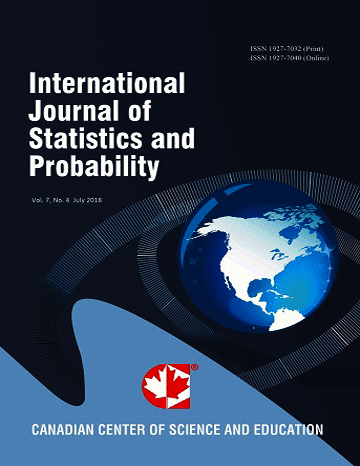Unified Approach to Probability Problems and Estimation Algorithms Associated With Symmetric Functions
- David Hertz
Abstract
In this article we introduce a simple powerful methodology where we replace the independent variables λ1,...,λnin various symmetric functions as well as in Vieta’s formulas by the indication functions of the events Ai,i = 1,...,n, i.e., λi = 1(Ai),i = 1,...,n. Both the random variable K that counts the number of events that actually occurred and the proposed obvious identity Π_n
^i=1(z−1(Ai)) ≡ (z−1)^KZ^(n−K) that solely depends on K play a central role in this article. Just by choosing different values for z (real, complex, and random) and taking expectations of the various functions we provide other simple proofs of known results as well as obtain new results. The estimation algorithms for computing the expected elementary symmetric functions via least squares based on IFFT in the complex domain (z ∈ C) and least squares or linear programming in the real domain (z ∈ R) are noteworthy. Similarly, we we use Newton’s identities and some well known inequalities to obtain new results and inequalities. Then, we give an algorithm that exactly computes the distribution of K (i.e., q_k:= P(K = k), k = 0,1,...,n) for finite sample spaces. Finally, we give the conclusion and area for further research.
- Full Text:
 PDF
PDF
- DOI:10.5539/ijsp.v10n4p166
Index
- ACNP
- Aerospace Database
- BASE (Bielefeld Academic Search Engine)
- CNKI Scholar
- DTU Library
- Elektronische Zeitschriftenbibliothek (EZB)
- EuroPub Database
- Excellence in Research for Australia (ERA)
- Google Scholar
- Harvard Library
- Infotrieve
- JournalTOCs
- Mir@bel
- Open policy finder
- ResearchGate
- Technische Informationsbibliothek (TIB)
- UCR Library
- WorldCat
Contact
- Wendy SmithEditorial Assistant
- ijsp@ccsenet.org
